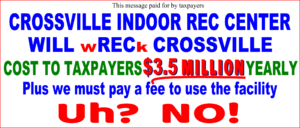MARCH 28TH NATIONAL WEED APPRECIATION DAY
NATIONAL WEED APPRECIATION DAY
National Weed Appreciation Day on March 28th each year reminds us that some weeds are beneficial to us and our ecosystem. Humans have used weeds for food and as herbs for much of recorded history. Some are edible and nutritious, while other weeds have medicinal value.
#WeedAppreciationDay
Do you remember as a small child the fun you had with dandelions? Well, these bright yellow flowers serve a purpose. Dandelions are a food source for insects and some birds. Humans eat young dandelion leaves and enjoy tea and wine made from the leaves and flowers. The Native Americans used dandelions to treat specific ailments. Nutritionally, dandelions contain a source of vitamin A and C, calcium, iron, and fiber.
HOW TO OBSERVE WEED APPRECIATION DAY
- Take the day to learn some of the benefits of the plants, weeds, flora, and fauna around us.
- Create a wildflower or native species garden.
- Identify the “weeds” in your neighborhood.
- Do you want to learn more? Read 5 Edible and Medicinal Weeds.
- Learn the uses and share your knowledge using #WeedAppreciationDay on social media.
NATIONAL WEED APPRECIATION DAY HISTORY
Weeds FAQ
Q. I’m confused. Are weeds bad or good?
A. A weed is basically any plant that grows where it’s not wanted. For example, if your vegetable garden is overrun with lambsquarter, it might be stealing nutrients from your tomatoes and onions. This prolific plant was once used to make lettuce salads or cooked and used as a replacement for spinach. And it still can be, but it’s known more as a nuisance in the gardening world. Many other weeds have gained this reputation because they are unsightly and difficult to remove. They don’t follow the rules of other plants that gardeners and farmers have found to make for successful planting.
Q. Is there a list somewhere that tells me what’s a weed and what isn’t?
A. Yes. The Federal Noxious Weed list is maintained by the USDA. Some states also maintain lists.






